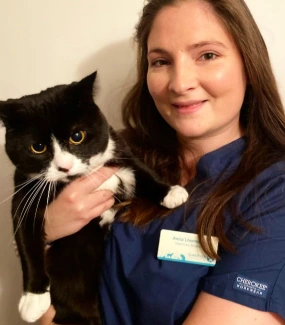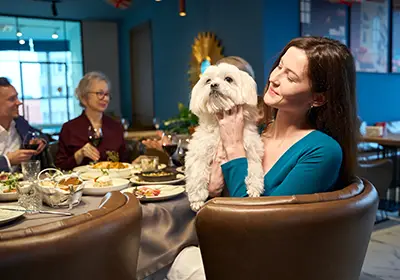What is an Endoscopy?
A pet Endoscopy is a procedure that involves inserting a small camera into the body, allowing for close-up and better insight into the lining of your pet’s organs and structures. It is used to identify, take samples or remove foreign objects or abnormalities. The camera, or Endoscope, can be a fine handheld piece of equipment perfect for small spaces like the nasal passages or we use larger more flexible endoscopes for deeper, more internal spaces like the stomach.
When Will My Pet Receive an Endoscopy?
A pet Endoscopy is typically suggested when your vet finds abnormalities flagged by a blood test or other imaging such as an X-ray. It usually confirms a diagnosis or further investigates a cause for certain symptoms. An Endoscopy may also remove or take samples of foreign objects to find appropriate treatment.
What Does the Procedure Involve?
If your pet has been referred for a pet Endoscopy, then they will be put under general anaesthetic and closely monitored during their imaging. Your pet will spend the day with us to ensure they recover well from the anaesthesia. They may cough following their procedure, this is normal but monitoring their temperature and appetite is important following their appointment. Results for these procedures may take around a week for diagnosis to come through.
Signs Your Pet May Need an Endoscopy
When your pet shows gastrointestinal symptoms such as vomiting, diarrhoea or weight changes then your vet may recommend an endoscopy. This imaging process means your vet can investigate their symptoms further. A pet Endoscopy may discover or rule out concerns around foreign bodies, ulcers, abscesses or internal trauma.
Types of Pet Endoscopy
- Esophagoscopy - to investigate your pet’s struggle to swallow, extra salivation, appetite changes and recurring pneumonia
- Endoscopic examination - investigates gastric disease and vomiting
- Duodenoscopy (small intestines) - used to investigate diarrhoea and intestinal issues
- Colonoscopy- investigates colon disease, or reasoning for small volume faeces, constipation, blood or mucus and frequent defecation
- Urinary endoscopy - reviews chronic UTIs and neoplasia or trauma
- Airway endoscopy - investigates upper respiratory conditions

Anna Lhermette
Certificate in Endosurgery







